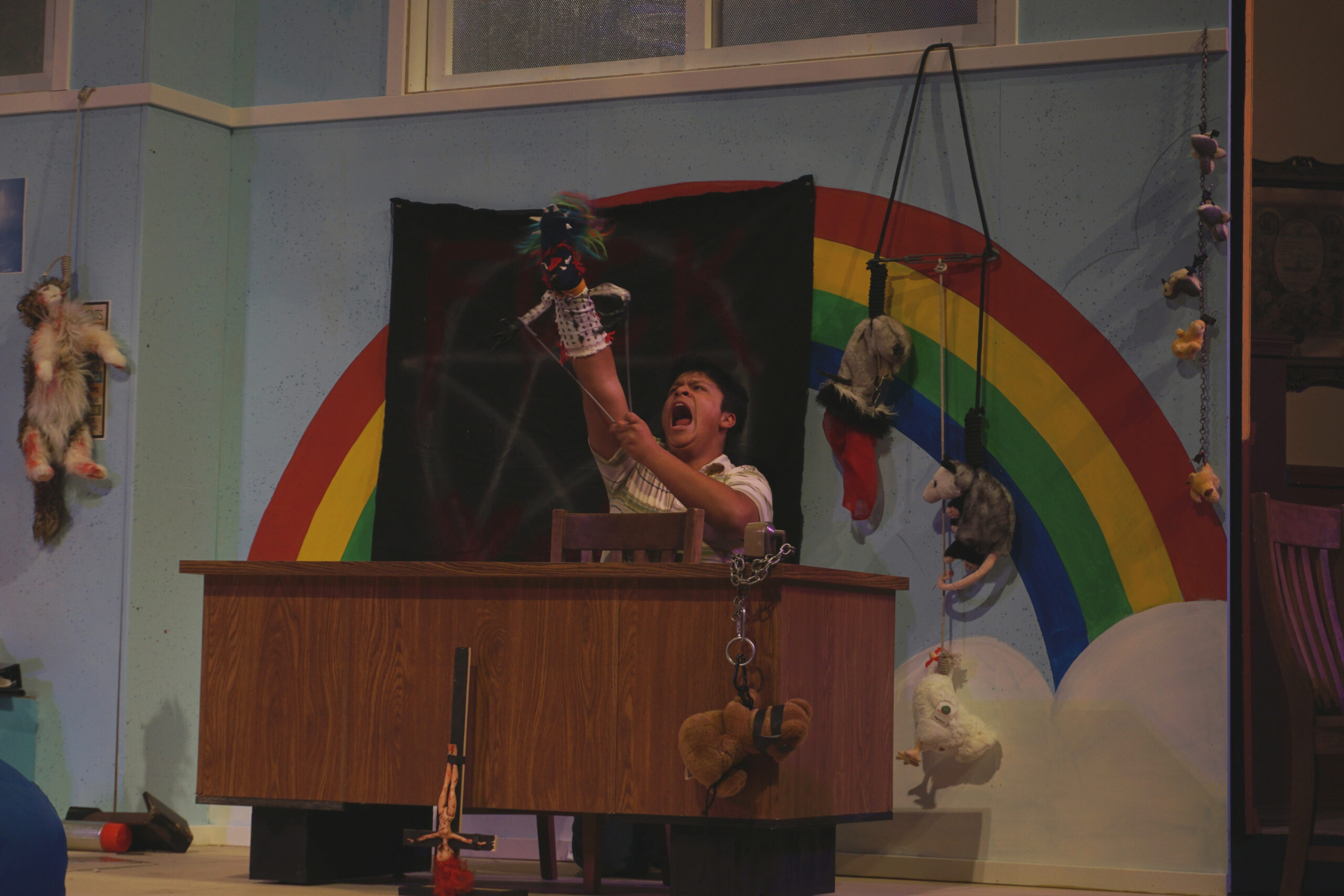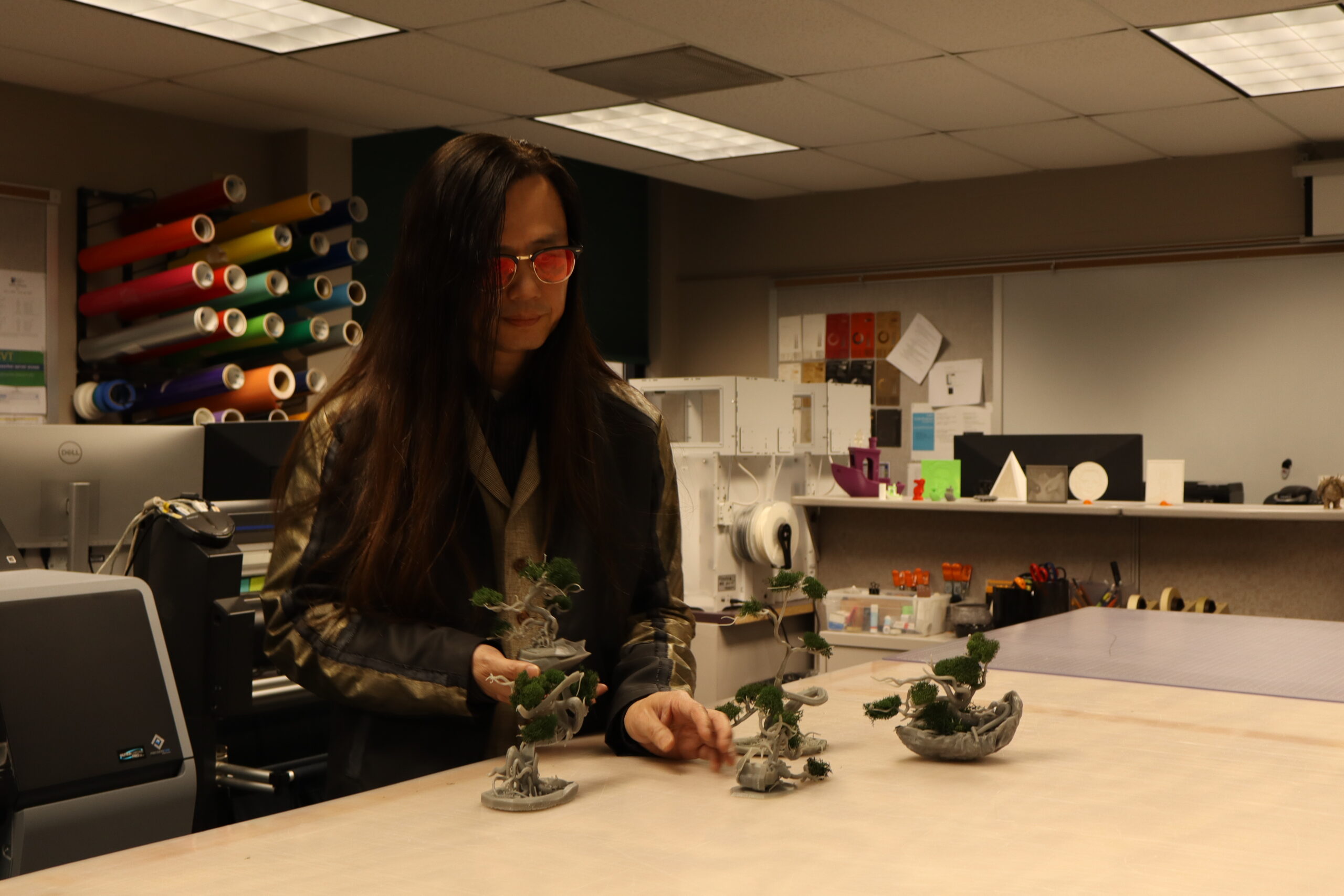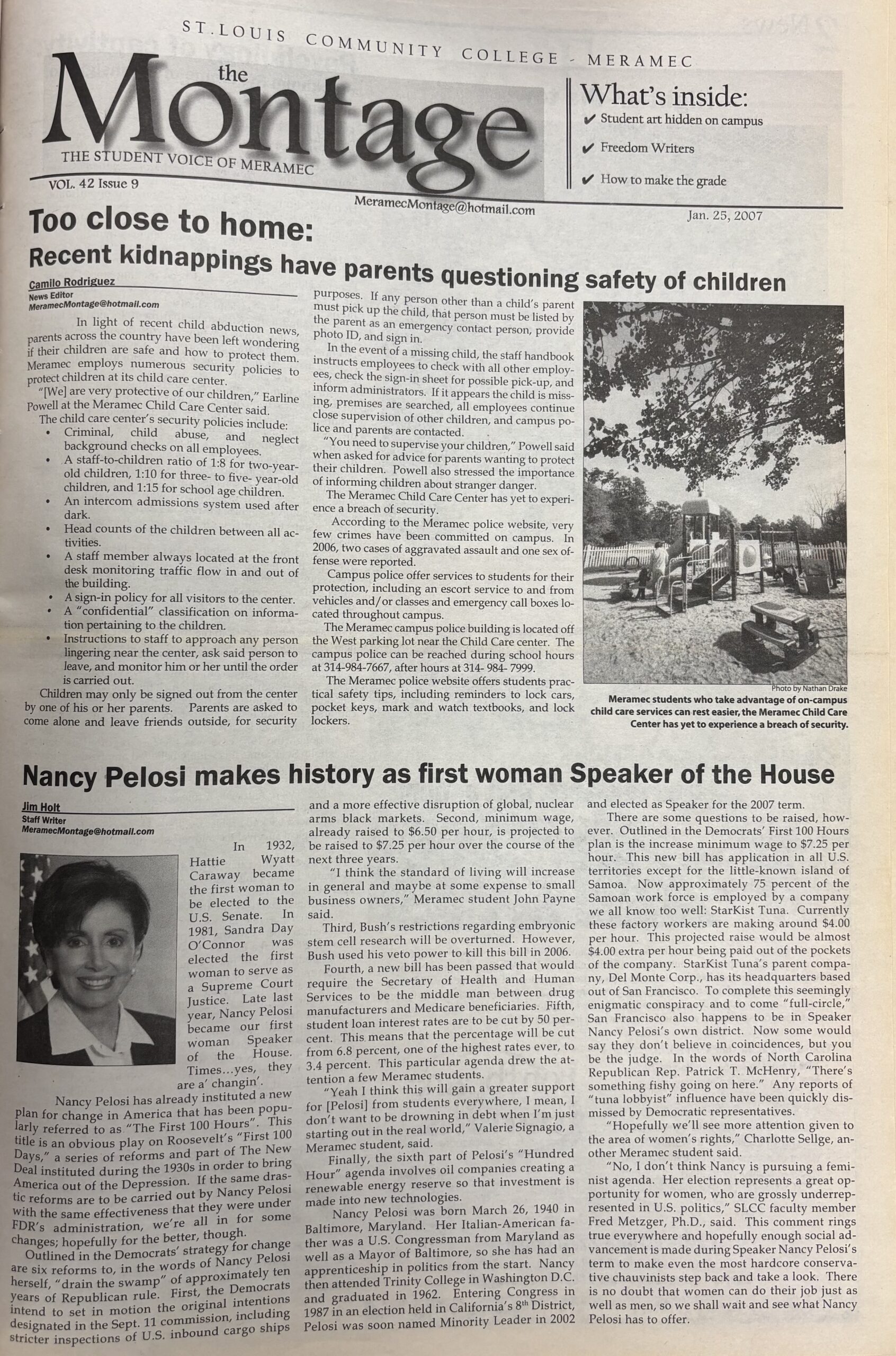Catherine Hawkins uses past experiences to help women in abusive situations
By: Dalila Kahvedzic
Editor-In-Chief
STLCC – Meramec student Catherine Hawkins is graduating this Spring with a human services degree after countless people told her she would not be able to make it.
“You hear people say they can never get through something; they don’t see the light at the end of the tunnel. I was the same way at one point and now? I’m graduating after people told me I wasn’t able to,” Hawkins said. “People told me I couldn’t go back to school because I had a baby; I actually went back to school full-time.”
The road leading up to the graduation stage had been rocky for Hawkins, beginning at the young age of six – a childhood that would unknowingly make a pathway for her career choice.
Hawkins suffered from child abuse by her mother for years before her mother committed suicide, she said.
“She was physically abusive, she would throw me on the bed and jump on me a lot,” Hawkins said. “Unfortunately it’s childhood trauma that you can’t forget sometimes – the last words my mother ever said to me were ‘happy birthday jackass’ on my birthday and that was my last birthday with her,” Hawkins said.
It was very hard growing up without a mom, Hawkins said. She faced challenges such as being bullied and being forced to grow up by herself. At one point, Hawkins described herself as a hermit – she would never leave the house.
Hawkins did not have much help growing up and school was tough, she said. Kids would always tell her that she would fail and flunk out.
“Even teachers were horrible back then. One time I was in math class and I was so traumatized by everything. I hated math, so my teacher would scream at me loudly in front of the whole entire class, I would try to look out the window, but she would come up to my desk and yell – ‘what are you looking at Catherine, are there numbers in the sky?’” Hawkins said.
Counseling was forced upon Hawkins, she said. Between counseling, therapy and the medicine she was taking – she gained 50 pounds, with her height only being 4-foot-11”.
“I was always so afraid of counseling. My school said that I was so outcasted that I had to go to therapy, otherwise I would get expelled. I was trying to make friends and everything but I didn’t have that motherly guidance. My hair was always a mess, my face full of acne, so it was really hard. I went to another school eventually but I got made fun of because I looked like I was pregnant from all that medicine,” Hawkins said.
Social workers told her that college was not in the books for her, Hawkins said.
“I kind of just gave up on everything. I stayed home for years and just didn’t go out and social workers told me it wasn’t a good idea to go to college. Then they told me to just volunteer – I couldn’t even drive my own car,” Hawkins said.
The road to self-acceptance took a long time, Hawkins said.
“It took so many years. Starting from very early childhood to 21, actually. I met a boyfriend and decided to move out and move in with him – I couldn’t handle the environment I lived in anymore,” Hawkins said.
Hawkins believes her boyfriend at the time, now husband, is what got her out of the hardship she was in and pushed her to go to school.
Hawkins has since then received an internship with the Crime Victim Advocacy Center as a victim advocate.
“One of the first things I did over the semester was go to the courthouse in the city where I was able to sit with victims [of abuse]. They would come in and they might, for say, need assistance filling out an order of protection if they were abused or if they had a situation where they needed protection from something, and we would assist them,” Hawkins said.
Hawkins currently works primarily in the helpline center. It is specifically for intimate partner violence, she said.
“A woman will call, say she needs an attorney, she’ll tell us her story and we’ll have to do a preliminary take on her to see if she’s eligible and if we can get her what she needs,” Hawkins said.
Sometimes women calling in may be crying or freaking out, Hawkins said, and it is difficult to talk to someone this way – it is a very hard process.
“We get a preliminary out – and that is where we ask them questions like what they need and what they want,” Hawkins said. “Usually they’ll ask for an order of protection.”
A lot of women will cancel the order of protection because they are afraid, Hawkins said. They get frightened and worry that the situation will end up worse.
“One of the things we do go over with them is a safety plan, each and every time, if they want to go over it,” Hawkins said.
The helpline center advises women to take steps such as changing their hairstyle, their clothing, getting a haircut, changing their route to the grocery store and making sure that they have someone reliable to call in case of an emergency.
“We don’t ask them to or tell them to, we are not allowed to do that, we just ask if it sounds good to them,” Hawkins said. The center’s main goal is to help sufferers of abuse, Hawkins said.
“To assist them as much as possible and to make them feel safer,” Hawkins said. “Just so they have that safety plan so whenever they do go out they can feel safe, because a lot of them don’t.”
Baby steps are taken with clients to insure stability.
“Negative experiences are what made me better today,” Hawkins said. “One thing that I can say is that negativity can actually get you somewhere because people said I couldn’t do all this stuff and I said – let me see what I can do.”
Childhood experience drove Hawkins into this career field, she said, but her husband has helped her power through it.
“Everybody told me I couldn’t be who I wanted to be, they told me I had such bad anxiety and that I couldn’t be a human service worker, that I couldn’t go to college – people always lowered my self-esteem” Hawkins said. “He made me feel important, he was the type of person that said ‘yeah, you can do it – you can do whatever you put your mind to.’ He makes me go to school – he tells me I have to go to school and accomplish my dreams.”
Eventually Hawkins and her husband got married and now have a two-year-old boy.
“It’s so funny how people say that having a kid is very stressful. I think it’s the best thing that’s ever happened to me, for sure,” Hawkins said.
Responsibility, working, going to college, having a kid and bills are all worth it compared to what she went through in her past, Hawkins said.
Hawkin’s husband sacrificed his own job just so she would be able to get to school, she said.
“He’s always saying there’s an answer for everything,” Hawkins said.
Having a child allows Hawkins to be the parent that she wished to have, she said.
“I can actually be the parent that I never had so it’s really good. I go through school and work for the benefits of him. Whenever I have hard exams or a hard semester I have a reason to go for it – he’s my little boy,” Hawkins said.
Hawkins always got told to go to school for money and to get a job for money, but she hopes to, along with her husband, teach her child otherwise.
“Money doesn’t buy you anything. I actually went from being very wealthy to living in a low class neighborhood, but it’s still worth it to me. I enjoy being poor rather than being miserable,” Hawkins said. “He [son] can do whatever he put his mind to.”
Hawkins is a full-time student, a mother and a wife. Hawkins is also set to graduate for Spring of 2016, despite the events she has gone through.
“One of the things he [son] needs to learn is empathy – knowing that there’s reasons for everything. A person who’s poor might be the happiest person, more so than a man with a million dollars,” Hawkins said. “Or a person with nice clothes and nice cars might not be as happy as someone without a dime on them.”











